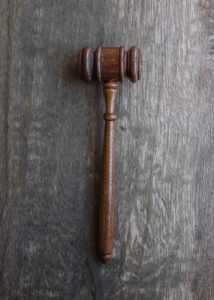What is Probable Cause?
Probable cause is the standard used in our legal system to determine whether there is enough evidence to charge any individual with a crime. While probable cause is admittedly a low standard, it still requires a showing that reasonably trustworthy information exists sufficient to warrant a prudent person in believing that a crime has been committed and that the accused is the perpetrator.
In the Boston Municipal Court or Massachusetts District Courts, the Clerk Magistrate determines the existence of probable cause. The Clerk Magistrate will review the information provided by the police (usually in the form of a police report) and decide whether there is a sufficient basis for issuance of the applied for charge. In some cases, specifically in a situation when a misdemeanor case is involved, the alleged perpetrator may be entitled to what is referred to as a Clerk’s Hearing or Show Cause Hearing. A Clerk’s Hearing, pursuant to statutory authority, allows the person to be charged with a crime the opportunity to be heard by the Clerk Magistrate as to why formal issuance of a charge is either not merited, or not necessary. In some situations, the Clerk Magistrate will impose an alternate resolution including keeping the case open within their office, or mandating restitution, rehabilitation or community service as a method of resolution. If the Clerk Magistrate determines there is not sufficient probable cause, the case will be dismissed prior to formal issuance.
Probable cause in the Massachusetts Superior Courts is determined by the sitting Grand Jury. The Grand Jury is a group of ordinary citizens who sit for a few months at a time to determine whether evidence presented by the prosecutor substantiates the low probable cause standard. The Grand Jury presentment is a confidential proceeding which could last for several months. During that time, only the prosecutor, police and civilian witnesses would be in the room presenting to the grand jury. Once the grand jury hears all of the evidence presented by the prosecution, the Commonwealth will normally ask the grand jury to vote to indict on the requested charges and determine that probable cause exists. If the grand jury votes to charge the defendant as requested, then the charges will be true billed and the defendant will be formally indicted. It is at this time that the defendant will be formally advised of the charges by way of arrest or summons for arraignment. Once the formal indictment issues, the defendant is entitled to obtain a copy of the grand jury minutes that formed the basis for that indictment.
In both the District Court and the Superior Court, there is a mechanism to contest the finding of probable cause after formal issuance of the charge(s). Specifically, the defendant can opt to file a Motion to Dismiss alleging insufficient basis for the charge, or insufficient evidence for a probable cause finding that the defendant was the person who committed the offense. In the District Court, this motion is pursuant to a case called Commonwealth v. DiBenedetto and in the Superior Court the basis falls under Commonwealth v. McCarthy. In either venue, the court would then make a determination as to whether the charge should stand pursuant to that probable cause standard.
If you have been charged with a crime and believe that the charge against you does not meet the probable cause standard, please contact Criminal Attorney Kristen Bonavita at (978) 376-6746.



